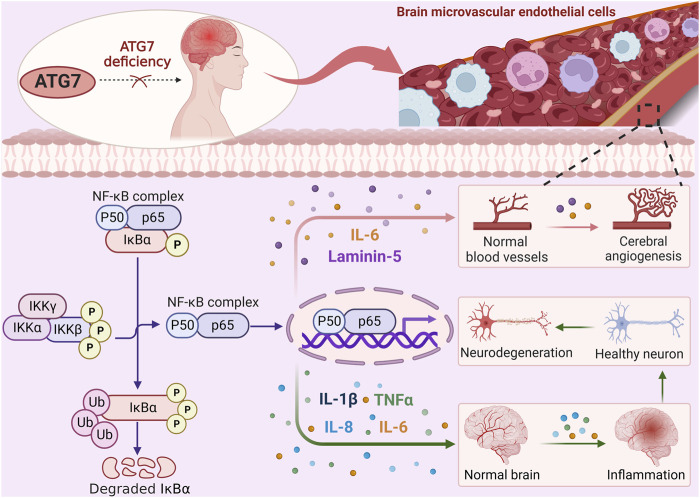FIGURE 2.
ATG7 regulates angiogenesis through NF-κB activation. ATG7 deficiency reduces IKKβ phosphorylation, thereby inhibiting IκBα phosphorylation and ubiquitination. Subsequent exposure to NF-κB nuclear localization signals is reduced, thereby attenuating the transcription and expression of reperfusion-induced pro-inflammatory cytokines such as IL-1β, TNF-α, IL-8, and IL-6, which in turn activate inflammatory responses and exacerbate brain injury. Meanwhile, the expression of IL-6 and laminin 5, which are dependent on NF-κB activation, is decreased after ATG7 knockdown, resulting in the inhibition of cerebral angiogenesis. ATG7 relies on transcriptional mechanisms independent of the autophagy pathway to regulate angiogenesis.

